Donald Trump promised to be the ‘candidate of peace’ – but analysts say he has made some situations worse
“If Kamala [Harris] wins, only death and destruction await, because she is the candidate of endless wars. I am the candidate of peace,” a buoyant Donald Trump told crowds at an election rally in Michigan last year. “I am peace.”
Since returning to the White House Trump has pledged to end the violence in Ukraine and Gaza, and reduce the involvement of US troops and resource overseas.
However, Trump has also turned on international allies, launched a global trade war and moved closer to Vladimir Putin’s Russia.
So, as Trump marks 100 days in office, has “the candidate of peace” made the world any safer?
The i Paper analyses Trump’s impact and why experts think the world is more volatile now:
Europe & Nato: An alliance undermined
Trump has expressed frustration at Europe’s overreliance on the US for its security, with leaked messages from his Vice President JD Vance calling Europeans “freeloaders”.
Nato – the military alliance that incorporates much of Europe – has been at the cornerstone of Western security since 1945, but Trump has repeatedly undermined it.
He has hinted that the US would withdraw – even saying he would “encourage” Russia to attack Nato members who do not spend enough on their militaries.
The Trump has also sowed dissent within Nato, waging a trade war on Canada and offering to make it the 51st state of America, as well as saying he wants to seize control of Greenland from Denmark.
The comments have undermined the strength of Nato, leaving Europe more uncertain of American support – and less safe on the global stage.
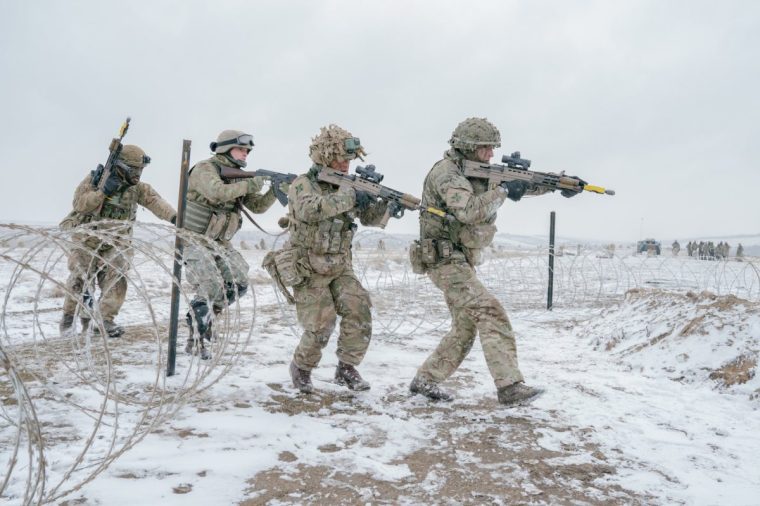
“America is often seen as a superpower because of its capabilities and nuclear weapons, but actually the real superpower the Americans have had has been trust in them as a reliable ally,” said Neil Melvin, director of international security at the defence and security think-tank, the Royal United Services Institute (RUSI).
“Irrespective of exactly what they’re going to do within Nato – like moving tanks around, or pulling them back – what Trump has done is destroyed this sense of trust which has been the foundation of that relationship.
“There is a feeling that Europe could be attacked and may have to stand alone, and it’s unclear if Europe is actually ready for that.
“There’s no doubt that Europe feels far less safe as a result of Trump.”
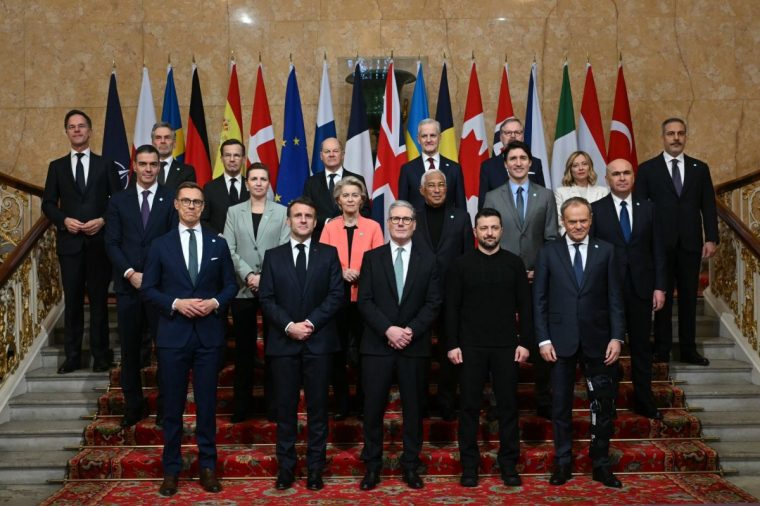
Dr Patrick Gill-Tiney, a fellow at the London School of Economics and Political Science (LSE), said that the “significant undermining” of Nato by Trump meant it was less effective at deterring Russian attacks, because it was no longer clear that the US would come to the aid of fellow Nato members.
“This may undermine the defensive planning that Nato undertakes, since it may become unclear what support the US will provide. Not only is the US by far the largest military, it also provides much of the command and control, logistics, and intelligence functions for Nato.“
However, Trump’s uncertainty has forced Europe to take steps to bolster its own security, with a rise in defence spending in Europe and tightening security partnerships on the continent.
The UK is currently negotiating a defence pact with the EU, including a new £126bn rearmament fund which British firms could be eligible to access.
Anna Getmansky, an associate professor of International Relations at LSE, said the deal would likely “increase cooperation on security and also beyond – something that was very unlikely even a few months age”.
Ukraine: A day-one peace that never came
Trump pledged to bring an end to the war in Ukraine “on day one” of his second term in office, though US-brokered peace talks have not yet reached a conclusion.
While a ceasefire would, in the short-term, stop the loss of lives, it could make the world less safe in the long run, according to experts.
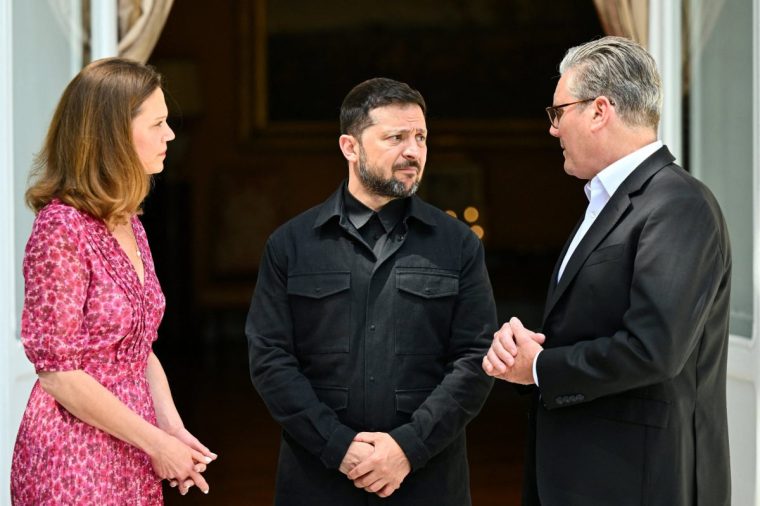
Trump has appeared to embrace much of Putin’s narrative about the invasion and analysts fear he may agree to the Russian president’s maximalist demands for a ceasefire – potentially including ceding vast swathes of Ukrainian territory to the Kremlin – in a bid to get a deal over the line.
But Trump has recently expressed frustration with Putin over continued attacks on Ukraine and met with Volodymyr Zelensky for talks during a visit to the Vatican for the Pope’s funeral.
Should Putin emerge with a favourable deal after an illegal invasion in which stolen land becomes Russian, analysts warn he will be emboldened to launch further conflicts in Ukraine and beyond.
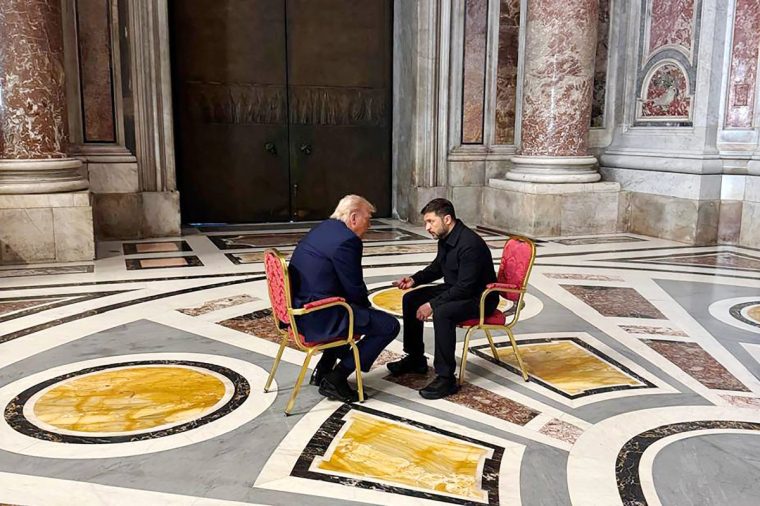
“The norm of non-acquisition of territory by force would be undermined,” said Dr Gill-Tiney. “If this is the pathway that the conflict takes, then it would set a precedent for future aggression, by Russia, or others.“
While the depletion of resources and manpower means Putin would be unlikely to invade again in the short term, Russian veterans of the war would have “huge experience of modern interstate warfare“, which would equip them well for future assaults, Dr Gill-Tiney said.
There is also no guarantee a US-brokered ceasefire deal would last without third party peacekeepers, which Ukraine and Russia have so far failed to agree on.
Professor Getmansky said that Russia already appears to have been bolstered by Trump.
“The obvious pro-Russian re-orientation in the US policy – including willingness to support or recognise Russia’s territorial claims and unwillingness to support Ukraine militarily – seem[s] to have emboldened Russia,” she said. “The Russian attacks [last week] against Kyiv that resulted in nine fatalities are just one example.
“In the short term, I think this change increases the likelihood of conflict escalation in the world.”
Hybrid conflict: A pass for Russia, and nervy allies
Trump’s administration has halted all offensive cyber operations against Russia and a senior cybersecurity official appeared to downgrade Russia as a cyberthreat in a speech to the UN. These moves could make allies including the UK less cyber-secure.
“British intelligence agencies have extensive and broad sharing agreements with their American counterparts. The efforts of the administration to halt efforts to counter Russia means that Britain will receive less intelligence on Russian cyber threats from the US,” Dr Gill-Tiney said.
“It is also not implausible to imagine that these agreements themselves might come under strain, since the governments of the two appear to have different interests and agendas, and perhaps even regard each other with some suspicion.”
British officials have reportedly begun to label some trade documents as ‘secret’ to shield them from the US, indicating a “significant collapse of trust“.
China: Trade war raging
Tensions between the US and China soared after Trump imposed tariffs of up to 245 per cent on Chinese exports.
A trade war between the world’s two largest economies jeopardises financial security for consumers across the world – but also increases the likelihood of military conflict.
“The more the US and China become ‘de-coupled’, the less of an economic dis-incentive there is for preventing escalation,” said Philip Shetler‑Jones, a senior research fellow in Indo‑Pacific security at RUSI.
“If high tariffs end US-China trade, there would be nothing to apply economic sanctions on to. This would remove a foreign policy instrument that has hitherto been favoured as an alternative to military coercion.“
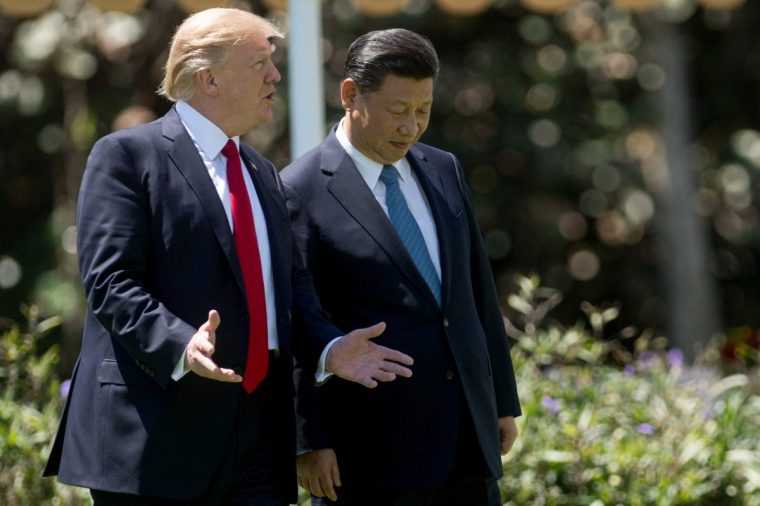
Trump’s previous stance towards Putin over his invasion of Ukraine could also lead China to assume the US would not respond militarily should it invade Taiwan, Professor Getmansky warned.
“US policies are removing some of the obstacles to the use of force and might embolden players who were previously deterred by the US,” she said.
These fears are felt acutely within Taiwan, one analyst said.
“They are watching this very closely and saying, if they can walk away from Europe, will they also walk away from us? If Trump comes up with a deal with China, what happens to Taiwan in that scenario? The whole US alliance system – which had been a major call for regional stability in Asia and in Europe – this lack of trust is why people feel unsafe,” RUSI’s Melvin said.
“The world is definitely less safe than before.”
Middle East: No peace in Gaza
Trump is attempting to curb Iran’s nuclear programme through negotiations with Tehran.
Dr Tiney-Gill said that efforts to curb nuclear proliferation were “sensible” but would require the involvement of other major powers including the permanent members of the UN Security Council.
“This stands some chance of success, though the Iranian nuclear issue is unlikely to be ‘resolved’ by any single deal,” he said, not least because all nine nuclear armed states are increasing investments in nuclear weapons, rather than reducing them.
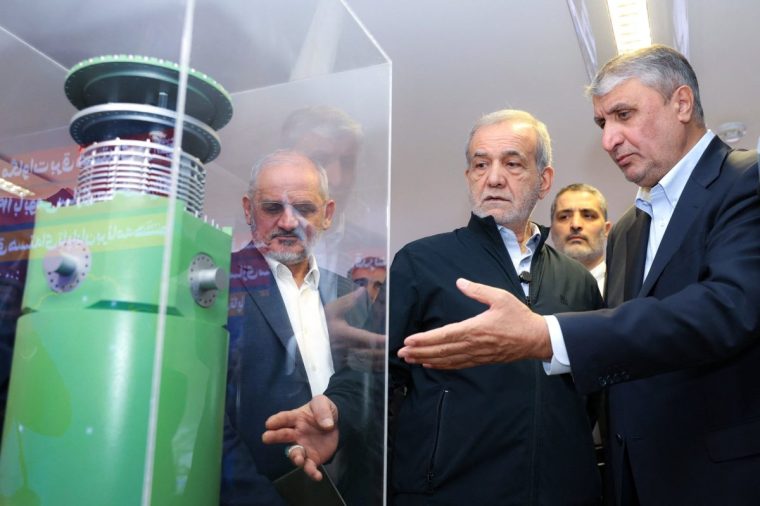
In Gaza, Trump has so far failed to bring lasting peace.
Although he initially helped broker a ceasefire, Trump has been highly supportive of Israel’s operations in Gaza, threatened to forcibly remove Palestinians and make Gaza into a US holiday resort and lifted sanctions on far-right Israeli settler groups in the West Bank.
All of these policies could fuel the fires of the conflict between Israel and Hamas, elongating the violence which has cost thousands of civilian lives.
Soft power: America’s voice gets quieter
Trump has cut many of the US’s long-term tools for soft power and stability, effectively closing its foreign aid department and Voice of America, a broadcaster designed to reach unstable or politically repressive countries.
One senior aid official, speaking on condition of anonymity, said that the aid ban is likely to destabilise poorer countries, which could trigger a rise in conflict, terrorism and irregular migration.
The senior official also said that cutting the US’s aid presence in Syria so soon after the fall of the Assad regime could allow Russia and Iran – two hostile states identified as a threat to the UK by the head of the army – to make gains.
